
Troy Hashimoto and Justin Woodson
The Seventh in a Series.
Editor’s note: In 2022, Leadership for the State and Maui County will be at the forefront with elections for Governor, Maui Mayor, Council, and due to reapportionment, all State Senators and State Representatives. The primary election will be held on August 13, 2022 with the General Election on November 8, 2022, and it’s not too early to start thinking about the type of State and County leaders needed. The first three months focused on potential gubernatorial candidates. The next three months focused on Maui County’s Mayor and Councilmembers. The next three months will focus on Maui’s state legislative leaders, who were simultaneously sent identical questions with the same response date. This month, we focus on State Representatives Troy Hashimoto and Justin Woodson. State Representatives Linda Clark, Angus McKelvey, Kyle Yamashita and Tina Wildberger did not timely respond.
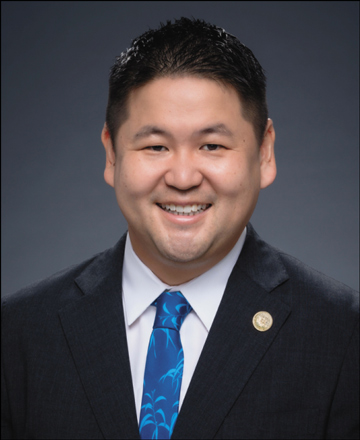
Troy Hashimoto
1. In 100 words or less, please tell us your background, including details about your family, education, and experience in the public, private, and non-profit sectors.
I am a fifth generation Maui boy, growing up on my family’s persimmon farm in Kula. I am a 2005 graduate of King Kekaulike High School and attended the University of Denver where I received my undergraduate and master’s degree in business. I previously worked for former Maui County Council Chair Mike White for nearly 8 years and served for 4 years as the chair of the Maui County Democratic Party, in addition to serving as a student member on the Hawaii State Board of Education.
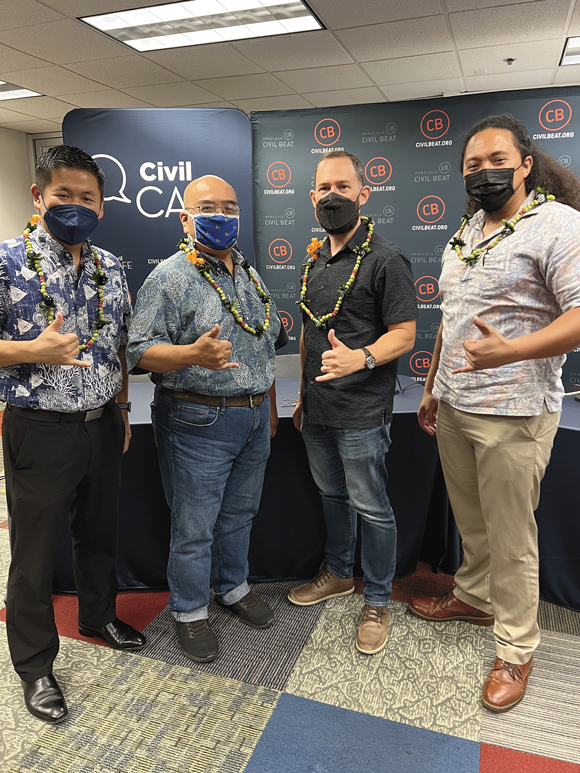
Photo courtesy Troy Hashimoto
2. In 200 words or less, please tell us: a) What is your vision for Maui? b) What is right with Maui? c) What is wrong with Maui?
My vision is to create an environment where local residents who grow up here in Hawaii can stay here. The first step is to create solid educational and job opportunities. In addition, with the reality of rising prices, we must create an environment where the cost of living is kept in check. The reality remains that the majority of a family’s paycheck goes towards the cost of housing. If just this one cost is reduced, it will make a tremendous difference in the daily life of many.
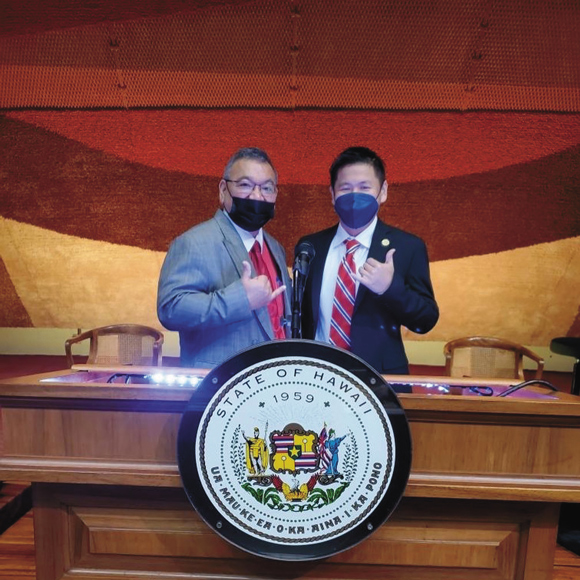
Photo courtesy Troy Hashimoto
An area of improvement that I am focusing on is the severe shortage of nurses and teachers in Maui County. When looking at one reason for this problem – it is because it is incredibly difficult to receive degrees in these fields. Students can become a Registered Nurse on Maui, but cannot easily obtain a four year degree. The hurdle for teaching is very similar – prospective teachers can do remote learning for K-6 teaching, but we do not have full access nor a dedicated program at right here on Maui. This must change and we must make progress on this issue for the sake of future generations.
3. In 125 words or less, please describe your relationship with Maui’s Filipino community.
I consider Maui’s Filipino community a part of my family. They are my friends, my mentors, and allies in community-building. As the largest ethnic group in the State of Hawai‘i, it is important to have the Filipino voice resonate and create a collective influence. I also share the same values — respect for elders, working hard, hospitality, joy and humor, and that family comes first. That is why I always make sure to learn from the Filipino perspective and honor the rich cultural heritage which helps to create the strong fabric of our Maui nui community.
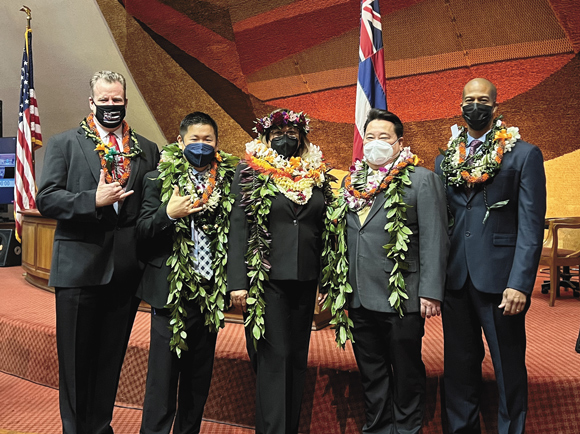
Photo courtesy Troy Hashimoto
4. In 500 words or less, please identify and explain the three greatest needs of Maui’s Filipino community.
Many describe the Filipino community as “no longer invisible.” Even the latest blockbuster movies have entire scenes done in Filipino, which is a nod to its growing influence not only in media, but also in other sectors like business, politics, and education. As someone who has closely worked with Filipinos, here are some observations.
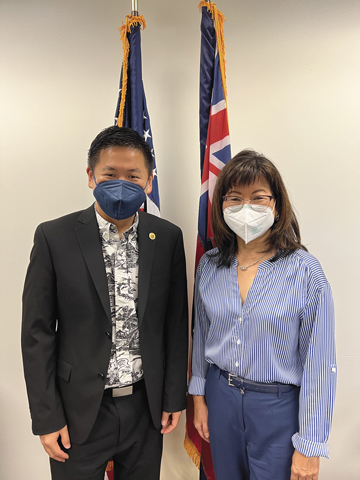
Photo courtesy Troy Hashimoto
• Affordable housing. In line with my priorities, I believe a home for our workforce can vastly improve the quality of life of our Filipino community. With financial debt from student loans, and the rising cost of healthcare, home ownership has been out of reach for many. Our young professionals today settle for compromised arrangements like living with their parents, or with roommates, or give up their hobbies for a second and third “hustle” just to make the monthly rent payments. The dialogue about overcoming economic barriers to higher education and starting a family can become realistic if we protect our residents’ rights to homeownership. Our kids will be able to imagine a future on Maui.
• Support for small businesses and workforce rights. After chatting with Filipino business owners, all are dealing with the same challenge – being understaffed. A Filipino restaurant claims they used to receive job applications EVERY WEEK during pre-pandemic times. With most immigration plans on hold, our Filipino businesses have showcased resilience by continuing to operate to keep the community running. I also recognize the disproportionate impact of the pandemic on Maui Filipinos, especially with frontline health workers, those in the hospitality and restaurant industries and other essential workers. Their safety is put at risk and they can’t simply “work from home.”
• Mental health stigma. The pandemic has pushed this issue to the forefront especially with the Filipino community. Common with Asian families, we tend to sweep problems under the rug and ignore them until they reach a tipping point. Perhaps with pride, shame and difficulty expressing one’s thoughts, it is hard for some in the Asian community to seek professional help when it is needed. Instead, it is dealt with within the confines of the family, which may cause more distress. Inadvertent harming phrases like “just ignore it” or “try not to be too depressed” can sometimes be shared light-heartedly as jokes but with more education on mental health, all communities can be stronger from within.
Our community, especially the Filipino community has been through a lot. Now is the time to reimagine our efforts to have the most meaningful impact for our next generation.
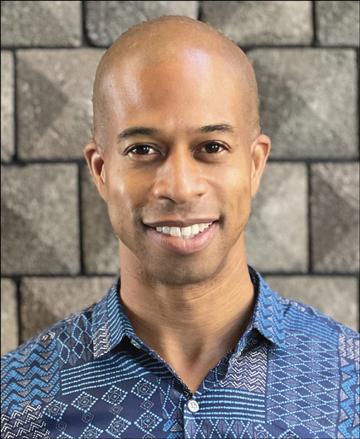
Justin Woodson
1. In 100 words or less, please tell us your background, including details about your family, education, and experience in the public, private, and non-profit sectors.
I have been involved in politics in various capacities for roughly 20 years. I’ve worked at the Hawaii State Legislature in both the House and Senate, including the late Representative Mele Carroll. I’ve also served at the Hawai‘i State Democratic Party of Hawai‘i. I’ve been a small business owner running Woodson’s Eco Auto Wash. We serviced car dealerships in the Kahului area. Currently, I am a Realtor. I’ve practiced real estate in the past as well. I’m married to Stacy Woodson and we have four children: Justice 17, Janalise 15, Jeven 14, and Jemery 10. I studied microbiology at the University of Oklahoma and have earned a Bachelor’s in Political Science from the California State University Fullerton.
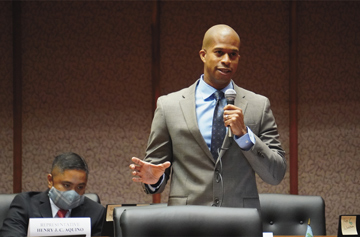
Photo courtesy Justin Woodson
2. In 200 words or less, please tell us: a) What is your vision for Maui? b) What is right with Maui? c) What is wrong with Maui?
I envision a Maui and state with world-class public schools. We have amazing school personnel but our system is not properly set up to maximize learning opportunities. I also see a Maui that offers truly affordable housing and rental solutions. We should continue to expand programs that support our seniors; and we must continue to support our businesses and imagine different means to diversify our economy so that everyone can ultimately obtain good-paying jobs.
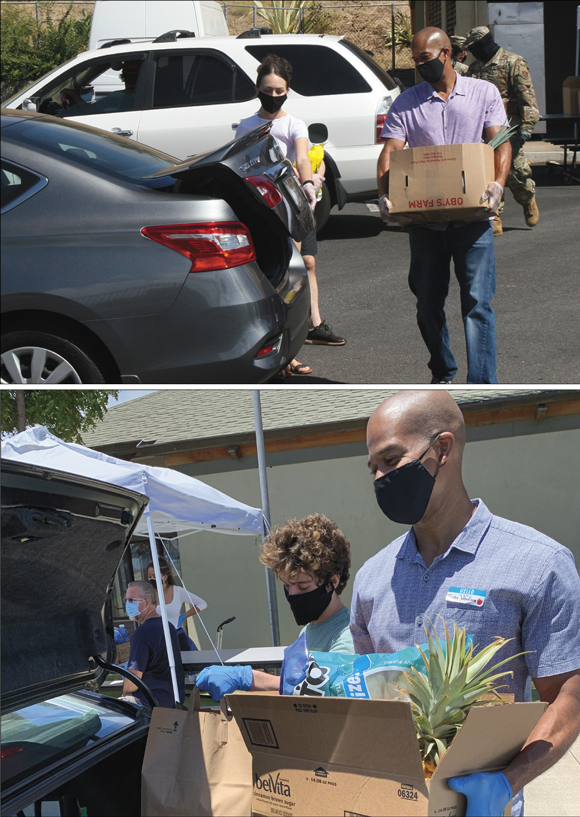
Photos courtesy Justin Woodson
Much is right with Maui. The connections people have with one another. The genuine happiness people share when they see each other when we are out and about. And the wholesome environment in which we are blessed to live and raise our families.
We must also continue to help those less fortunate like our homeless community.
3. In 125 words or less, please describe your relationship with Maui’s Filipino community.
My family and I are a part of the Filipino community. The Filipino community thrives on Maui. We enjoy spending time with one another at cultural events, beauty pageants, birthday parties, and church. The pandemic has made me appreciate these gatherings even more. I also love how in difficult times, we come together. This can be seen early in the pandemic when we distributed hundreds of boxes of food to those in need. It is a blessing to be a part of such a connected community.
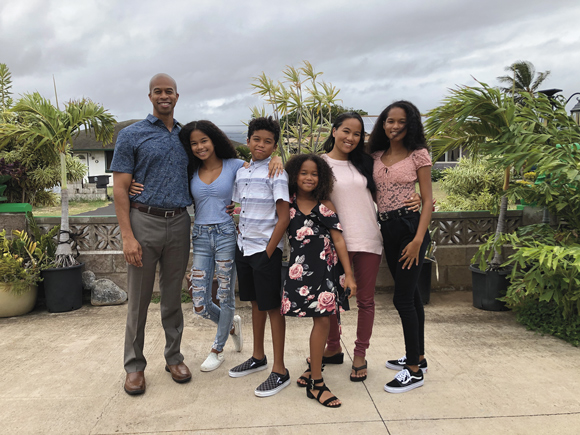
Photo courtesy Justin Woodson ‘Ohana
4. In 500 words or less, please identify and explain the three greatest needs of Maui’s Filipino community.
The greatest needs of the Filipino community are the same needs of all locals on Maui. We need terrific schools so that our children can have promising futures. We need better and more affordable housing options. And we need job opportunities.
